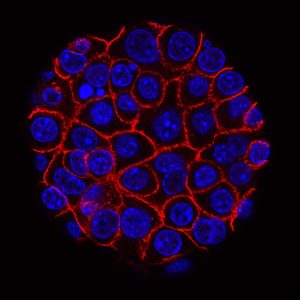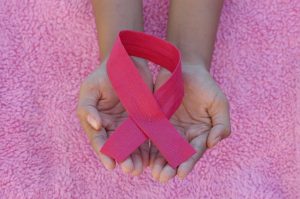Sanofi’s breast cancer candidate tipped for future success
pharmafile | February 25, 2010 | News story | Research and Development, Sales and Marketing | BSI-201, Sanofi-Aventis, breast cancer
A Sanofi-Aventis drug currently in phase III has been predicted as a future blockbuster in breast cancer treatment.
Sanofi’s BSI-201 could earn sales of $1.7 billion in the ‘triple negative breast cancer’ drug market in the US, France, Germany, Italy, Spain, UK and Japan, according to market analysts Decision Resources.
Triple negative breast cancer refers to patients who have none of the three targets of current therapies – estrogen (targeted by tamoxifen) and progesterone receptors and the over-expression of HER2 (targeted by Herceptin).
An estimated 15-20% of all breast cancers lack the over-expression of these proteins, hence the term triple negative breast cancer or TNBC.
BSI-201 has demonstrated improvement in overall survival rates in early clinical trials in these patients, suggesting it can successfully meet an unmet medical need.
Decision Resources analysts say BSI-201 is expected to steal significant market share from Roche’s Avastin after its launch, which is expected in the US and Europe in 2012 and in Japan in 2014.
BSI-201 is the first in a new class of drugs, poly ADP-ribose polymerase (PARP) inhibitors, and other PARP inhibitors currently in development include AstraZeneca’s olaparib and Pfizer’s AG-014699.
“The inhibition of PARP has emerged as a novel therapeutic strategy in DNA repair-deficient tumours as studies suggest that combining PARP inhibition with DNA-damaging chemotherapy or radiation may have a synergistic or enhanced effect,” said Decision Resources Analyst Dr Niamh Murphy.
“Interviewed thought leaders are very optimistic about the PARP inhibitors and, in particular, about BSI-201’s potential in the triple negative breast cancer setting.”
The Pharmacor 2010 report findings also predict much greater competition in the field of HER2 positive breast cancer, currently dominated by Roche’s Herceptin (trastuzumab).
It says recently announced trial data for Herceptin in combination with GSK’s Tykerb/Tyverb (lapatinib) provides further evidence that a dual human epidermal growth factor receptor 2 (HER2)-targeted approach helps patients with HER2-positive metastatic breast cancer live longer.
But it says competition from other HER2 targeting drugs will curtail the growth of this combination.
“We expect that the combination of trastuzumab and lapatinib will garner sales of approximately $30 million in the world’s major markets in 2013,” Dr Murphy said.
“However, in 2018, sales of trastuzumab/lapatinib will drop to less than $20 million, due to the approval and uptake of novel HER2-targeted therapies such as Roche’s Herceptin-DM1, Pfizer’s neratinib and Roche’s pertuzumab.”
Related Content

FDA accepts BLA for AstraZeneca and Daiichi Sankyo’s datopotamab deruxtecan for breast cancer treatment
AstraZeneca and Daiichi Sankyo have announced that their Biologics License Application (BLA) for datopotamab deruxtecan …

Genentech shares positive results from phase 3 trial for breast cancer treatment
Genentech, a member of the Roche Group, has announced positive results from the phase 3 …

FDA approves AstraZeneca’s Truqap plus Faslodex for breast cancer treatment
AstraZeneca has announced that the US Food and Drug Administration (FDA) has approved Truqap (capivasertib) …








